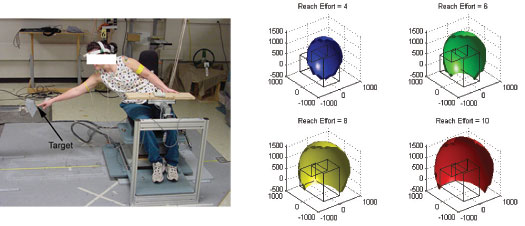Adaptive design refers to experimental design where the next sample point is determined by information from previous experiments. This article presents a constrained optimization algorithm known as superEGO (a variant of the EGO algorithm of Schonlau, Welch, and Jones) that can create adaptive designs using kriging approximations. Our primary goal is to illustrate that superEGO is well-suited to generating adaptive designs which have many advantages over competing methods. The approach is demonstrated on a novel human-reach experiment where the selection of sampling points adapts to the individual test subject. Results indicate that superEGO is effective at satisfying the experimental objectives.

